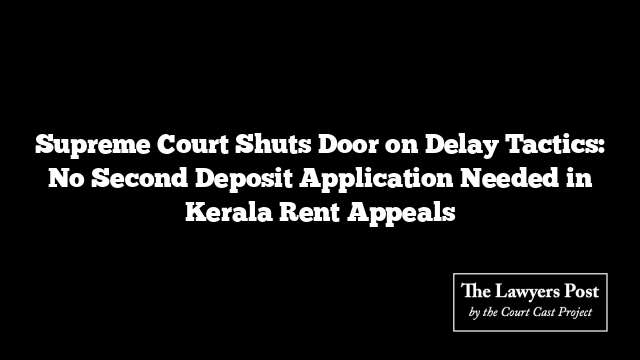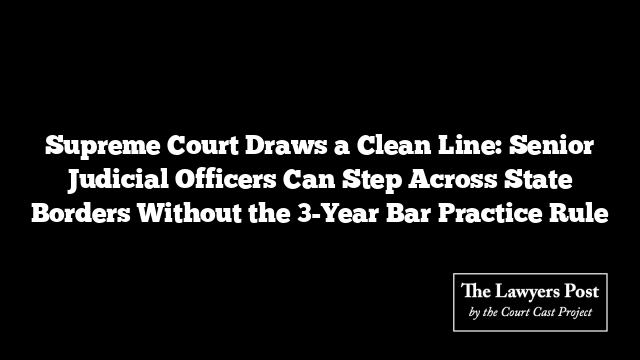In a ruling that slices through procedural clutter, the Supreme Court has declared that landlords don’t need to circle back and file a fresh Section 12(1) application under the Kerala Buildings (Lease & Rent Control) Act when tenants drag an eviction order to the Appellate Authority.
A bench of Justices Rajesh Bindal and Manmohan laid out the principle with clarity: the Appellate Authority is not a second-stage rent calculator. It is a review forum, tasked only with testing the legality and correctness of what the Rent Control Court has already done — not re-litigating the tenant’s long trail of defaults.
The case itself was a classic tale of delay. Two commercial shops in Kochi — prime real estate — had been occupied for over five years without rent being paid. The tenant had stopped paying in 2020. The landlords pursued both eviction and recovery of dues, eventually securing a civil court decree for more than ₹26 lakh. That decree remained standing and untouched.
Armed with that decree, the landlords moved under Section 12(1), which requires tenants to deposit admitted rent before contesting eviction. The Rent Controller put a clear figure on the arrears — close to ₹1 crore — and demanded it be deposited. The tenant didn’t pay. Under Section 12(3), proceedings were halted and the landlords were ordered to be put back in possession.
The tenant then carried the fight to the Appellate Authority. But once again, when ordered to deposit admitted rent, he did nothing. The appeal was stopped in its tracks — until the Kerala High Court stepped in and said the Appellate Authority couldn’t rely on Section 12(3) unless the landlord filed a fresh Section 12(1) application in the appeal itself.
The Supreme Court has now rolled that view back entirely.
The Court emphasised that forcing landlords to re-run the entire Section 12 procedure in appeal would flip the statute’s efficient design upside down. It compared such an interpretation to asking a decree holder to refile the very application that led to a decree merely because the judgment-debtor has appealed.
Calling the High Court’s approach “absurd” and “contrary to the spirit of the Act,” the bench warned that such a reading would reward defaults and enable tenants to weaponise procedure to delay eviction indefinitely.
The ruling reaffirms that Section 12 is meant to be firm, not loop endlessly. Once the Rent Controller has applied it, the Appellate Authority simply examines whether that was done correctly — nothing more, nothing less.
With this judgment, the Supreme Court has effectively shut down an escape route long used by tenants to stretch proceedings. The message is unmistakable: default has consequences, and appellate review is not a reset button.




